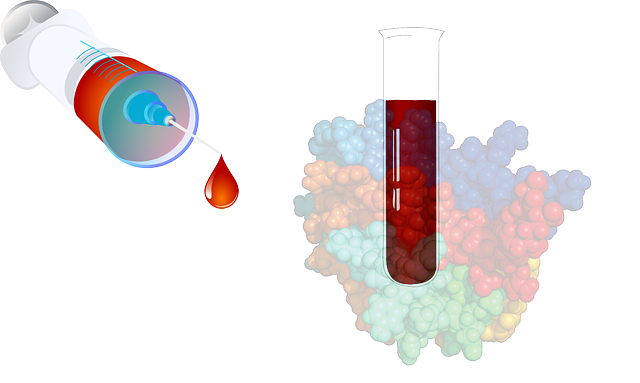Iron deficiency anemia, a common blood disorder causing fatigue, weakness, and other symptoms, can be effectively managed in the UK through routine Well Person Blood Tests (full blood counts). Early detection allows for personalized treatment plans ranging from dietary changes to IV iron infusions, preventing severe health issues associated with untreated anemia.
In the UK, iron deficiency anaemia (IDA) is a common health concern. Fortunately, simple blood tests play a pivotal role in its early detection. This article explores IDA—its causes, symptoms, and how well person blood tests can identify it. We delve into the science behind diagnostic procedures, interpret results, and discuss treatment options available. Understanding IDA is essential for maintaining optimal health, especially for those considering routine Well Person Blood Tests in the UK.
- Understanding Iron Deficiency Anemia and Its Symptoms
- The Role of Blood Tests in Diagnosis
- Interpreting Results and Treatment Options
Understanding Iron Deficiency Anemia and Its Symptoms
Iron deficiency anemia is a common blood disorder where your body doesn’t have enough healthy red blood cells to carry adequate oxygen to your tissues and organs. This can lead to fatigue, weakness, pale skin, shortness of breath, dizziness, and headaches. It’s crucial to spot these symptoms early as they can significantly impact daily life. In the UK, a well person blood test is often recommended as a routine check-up, which can detect iron deficiency anemia before symptoms become severe.
This condition is typically caused by insufficient iron intake or blood loss. Iron plays a vital role in producing hemoglobin, the protein in red blood cells that transports oxygen. A balanced diet rich in iron-containing foods, such as leafy green vegetables, legumes, and lean meats, can help prevent deficiency. However, if left untreated, it may lead to more serious health issues. Identifying anemia through regular Well Person Blood Tests in the UK can facilitate timely intervention and management.
The Role of Blood Tests in Diagnosis
In the UK, blood tests play a pivotal role in diagnosing iron deficiency anemia, a common yet potentially serious health condition. A well-person blood test, also known as a full blood count (FBC) or complete blood cell count (CBC), is often the first step in identifying this anemia. During such tests, healthcare professionals examine different components of your blood, including red blood cells, white blood cells, and platelets, to assess their quantity and quality. Specifically, they look for low levels of hemoglobin, a protein that carries oxygen in red blood cells, which is a key indicator of iron deficiency.
These diagnostic procedures are essential as they help differentiate iron deficiency anemia from other types of anemia or underlying health issues. By analysing the blood, healthcare providers can determine the severity of the deficiency and tailor treatment plans accordingly. Regular well-person blood tests, especially for individuals at risk or with symptoms suggestive of anemia, are crucial in early detection and effective management of iron deficiency anemia.
Interpreting Results and Treatment Options
Interpreting Results & Treatment Options
After your well person blood test UK, the results will be analysed to determine if iron deficiency anemia is present. A complete blood count (CBC) is typically used, which measures different types of cells in your blood, including red blood cells (RBCs). A low level of hemoglobin or a low number of RBCs could indicate iron deficiency anemia. If the test results confirm anemia, further tests may be needed to pinpoint the exact cause, such as poor diet, bleeding, or absorption issues.
Treatment options vary depending on severity and underlying causes. Generally, the primary goal is to increase iron levels through dietary changes or supplements. Incorporating iron-rich foods into your diet, such as red meat, dark leafy greens, beans, and fortified cereals, can help restore iron stores. In more severe cases, medical treatments like intravenous (IV) iron infusions may be recommended. These treatments effectively replenish iron levels and alleviate symptoms of anemia.
Iron deficiency anemia is a common yet manageable condition, especially when caught early. A simple well person blood test UK can be a powerful tool for diagnosis, allowing healthcare professionals to identify low iron levels and guide appropriate treatment. By understanding the symptoms and relying on accurate testing, individuals can take proactive steps towards optimal health.
